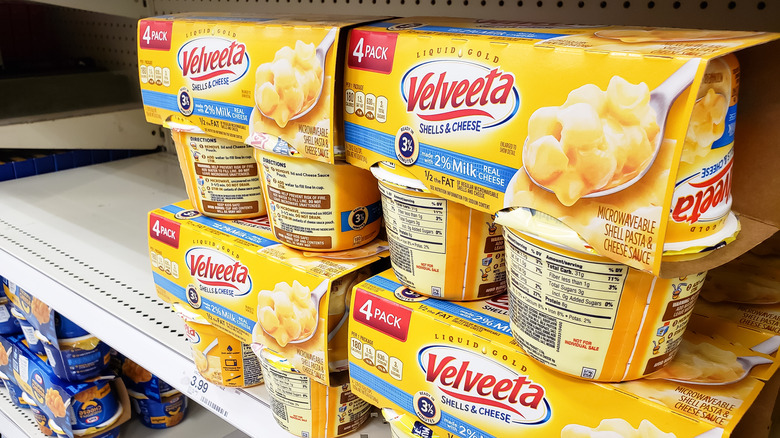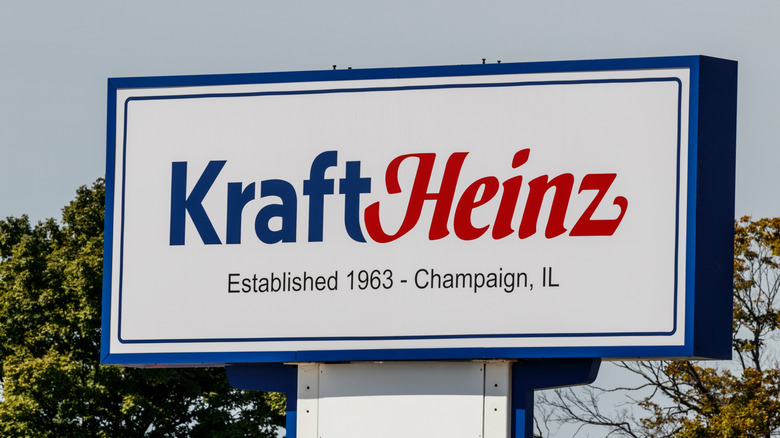Judge Throws Out The Lawsuit Against Velveeta Shells & Cheese
U.S. District Judge Beth Bloom dismissed a class action lawsuit against Kraft Heinz over the cooking time of its Velveeta Shells & Cheese on July 27. You might remember the case from when it first came to light last year. At the time, Kraft Heinz responded with a statement noting, "We are aware of this frivolous lawsuit and will strongly defend against the allegations in the complaint."
The suit was filed by Amanda Ramirez, a Florida resident who claimed the cooking instructions featured on the popular instant macaroni and cheese product were deceptive. The packaging of Velveeta Shells & Cheese states that the product can be ready in three and a half minutes, but that only accounts for the actual cook time in the microwave. Ramirez claimed this is inaccurate because it doesn't account for the time it takes to remove the packaging, open the pouch of cheese sauce, add water, and other prep work such as stirring. It also tastes best if you wait for the cheese sauce to thicken after it comes out of the microwave, and all of those extra steps add up to more than the advertised time.
More details on the case behind the lawsuit
The charges against Kraft Heinz included fraud and false and misleading advertising among other claims. Ramirez sought $5 million over these claims, but will receive no compensation because the judge ruled she "suffered no injury." However, the plaintiff can refile charges or take the case to another court if she pleases.
This certainly isn't the first time food brands and restaurants have been sued over misleading advertising. Back in 2022, Subway was sued over its tuna sandwich because the tuna wasn't made up of "100% tuna." The sandwich chain was also sued in 2020 in Ireland because plaintiffs claimed their bread wasn't really bread due to its high sugar content. More recently, this week a New York City resident sued Taco Bell in the Eastern District Court of New York over the size of its popular Crunchwraps, claiming the filling is just half of what's shown in advertisements.

